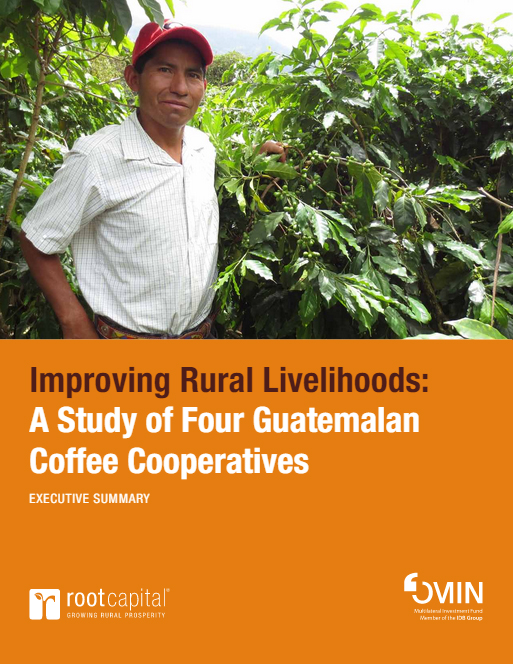 Last month, we shared one of the findings from our recent multi-client impact study: that cooperative membership was associated with more widespread use of sustainable agricultural practices by farmers.
Last month, we shared one of the findings from our recent multi-client impact study: that cooperative membership was associated with more widespread use of sustainable agricultural practices by farmers.
Despite these signs of improvement, however, we also found that the overall use of sustainable agricultural practices remained limited. Most cooperative members reported using only a handful of the 10 sustainable agricultural practices examined in the study. When they did use these practices, members were often implementing them incorrectly or inconsistently from year to year, due to financial constraints or limited agronomic knowledge.
We know that the inadequate use of sustainable production practices is not unique to the four cooperatives in this study and can be observed on fields and farms throughout the world.
There is an important, but often overlooked, impact opportunity here. If rural cooperatives – often the primary or only service providers in these remote, marginalized communities – could improve their own agricultural extension services, they could also significantly improve farmer livelihoods and environmental health.
In light of this study and our work with hundreds of other farmer organizations, we began to brainstorm potential improvements that cooperatives could implement themselves or with partners.
Here are three ideas:
1. Provide more support to farmers for the production or purchase of fertilizer.
One of the greatest challenges for smallholder farmers globally is accessing fertilizer and applying it appropriately and in sufficient amounts. Even if it’s available, they often cannot access enough organic matter, such as coffee pulp or manure, to fully meet the nutritional needs of their coffee trees. And they generally cannot afford to purchase additional fertilizer to close the gap.
We saw this in the Guatemala studies, and we’ve seen similar challenges in coffee cooperatives throughout our portfolio. During our environmental due diligence, roughly 40 percent of coffee cooperative clients mentioned soil degradation – from inadequate fertility management and/or erosion – as a serious threat to their farmer suppliers.
We’ve also, however, seen many examples of clients that are doing more to support farmers in this area. For example, two Peruvian clients manage organic fertilizer plants – both financed by Root Capital – to provide their members with a ready supply of fertilizer at subsidized rates. Similarly, a Mexican client provides its members with targeted training on how to create organic fertilizer from local materials, using vermicomposting – composting using worms – and other methods.
2. Customize training to the needs of individual members.
With many coffee clients we see an opportunity for cooperatives to customize their training activities in order to better identify and respond to members’ unique needs. For example, some farmers in the Guatemala study requested on-farm training as a complement to centralized workshops, ideally in their local languages rather than in Spanish.
Customized training might also help to narrow the knowledge gap between male and female farmers, whom we found in the study to be less familiar with coffee production techniques than male members.
3. Leverage data and technology to strengthen training.
Prior to this study, the four Guatemalan cooperatives lacked detailed data on the agronomic practices used by their members, making it difficult to identify areas of strength or areas for improvement.
Analysis of individual farms, using data collected through internal inspections or external studies such as this one, could help cooperatives develop or facilitate more targeted training curricula. Root Capital is exploring how we might support clients in this area, including by helping them transition from paper-based to mobile farm inspection systems – which could enable data aggregation and deeper analysis.
Next steps
For many cooperatives, these ideas likely require incremental resources, such as additional technical staff, perhaps with broader or deeper skills; investment in systems or data management tools; or funds to cover increased operating costs. Some cooperatives may not be able to improve their services without external support from financiers, technical assistance providers, certification organizations, or buyers.
Recognizing this, Root Capital is starting to explore drivers and barriers to local agricultural businesses providing effective agronomic support to their farmer suppliers. By better understanding the specific constraints facing businesses in our portfolio, we hope we might better support them in improving their services and, by extension, the environmental performance of their members.

What do you think?